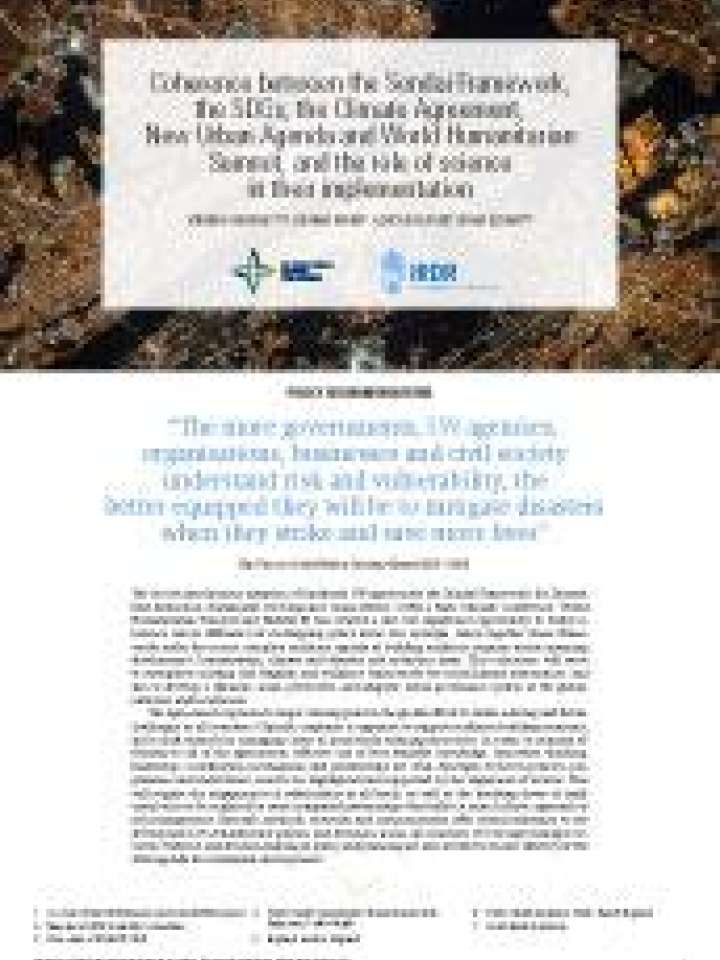Coherence between the Sendai Framework, the SDGs, the Climate Agreement, New Urban Agenda and World Humanitarian Summit, and the role of science in their implementation
The recent synchronous adoption of landmark UN agreements the Sendai Framework for Disaster Risk Reduction, Sustainable Development Goals (SDGs), COP21’s Paris Climate Conference, World Humanitarian Summit and Habitat III has created a rare but significant opportunity to build coherence across different but overlapping policy areas. For example, taken together these frameworks make for a more complete resilience agenda as building resilience requires action spanning development, humanitarian, climate and disaster risk reduction areas. This coherence will serve to strengthen existing risk fragility and resilience frameworks for multi hazard assessments, and aim to develop a dynamic, local, preventive, and adaptive urban governance system at the global, national, and local levels.
Key recommendations in building coherence between these agreements and agendas include:
- Raising awareness with national and sub-national governments on how the different frameworks align is critical; the relative political weight of frameworks may affect collaboration and coherence.
- Facilitating key partnerships which help avoid duplication and maximise gains. Institutional incentives to work together may also be required to reinforce joint working across agreements.
- Instituting clear governance arrangements to ensure successful collective action and accountability.
- Developing consistent definitions, particularly on resilience and risk which feature as common themes across all of the agreements.
- Promoting science and technology involvement by funding national / regional research projects. The Sendai framework specifically calls for enhanced scientific work in disaster risk reduction and a better coordination of existing networks and scientific research institutions.
- Joined up monitoring processes which track progress on implementation of the frameworks. This will also help minimise the reporting burden on countries, making data collection achievable.
- Ensuring national ownership and leadership on all of these frameworks will also be fundamental to success.
Explore further
